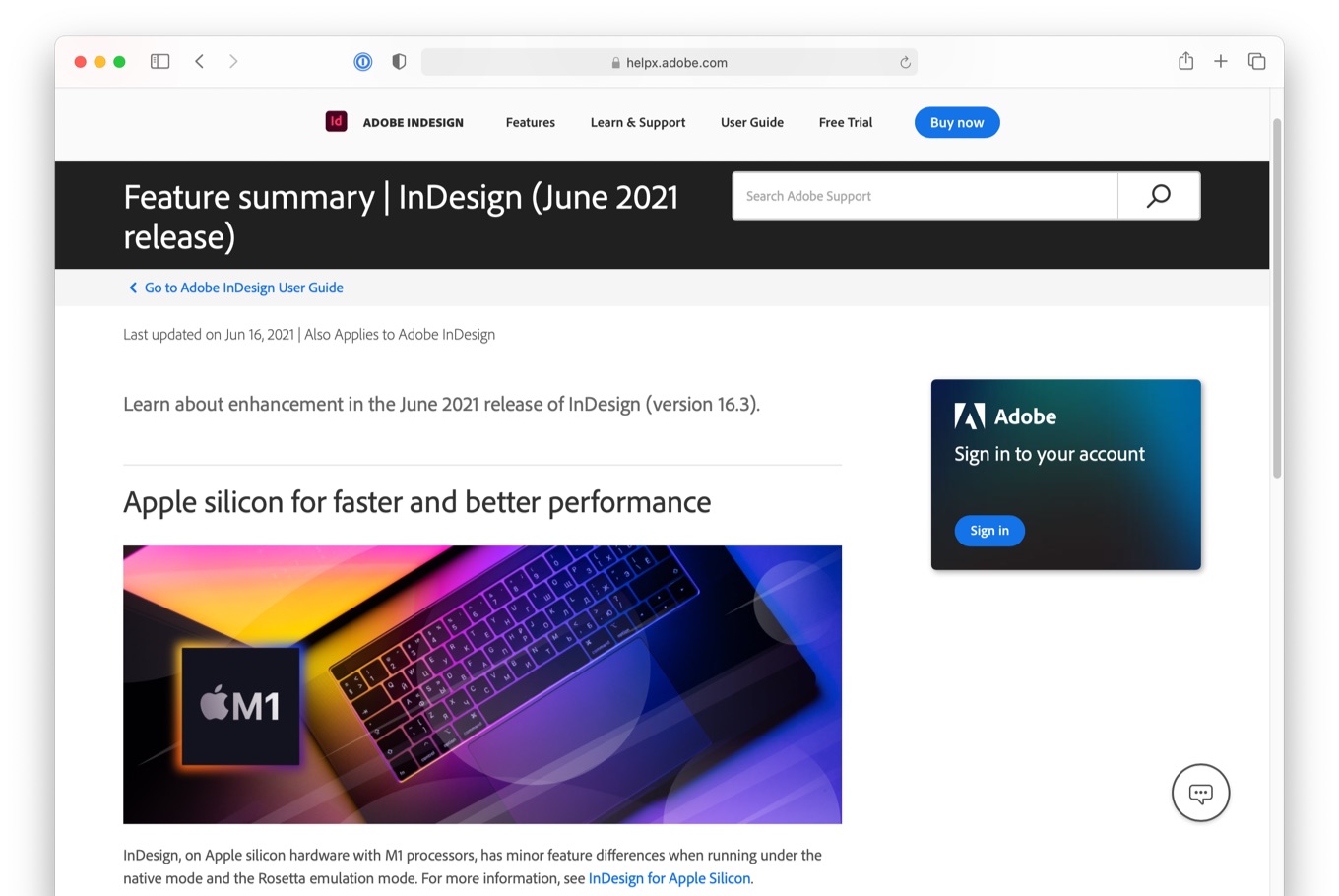
Pocket-Lint Recommendation: Nintendo SwitchĪdobe has also released some pretty incendiary data that shows the performance of Creative Cloud apps is significantly better on the M1 chip - an average 83 performance uplift rising to a whopping 88 percent in Photoshop.Īnd if you're thinking this might only reflect a few key features like content-aware fill, you'd be wrong - expert Andreas Pfeiffer undertook 774 benchmark measures across the software suite and published a report showing all the results.ĪI features using Adobe's Sensei machine-learning tech saw around a 4-6 times uplift in performance.
 Pocket-Lint Recommendations: Xbox Console. Pocket-Lint Recommendation: Google Nest.
Pocket-Lint Recommendations: Xbox Console. Pocket-Lint Recommendation: Google Nest.  Pocket-Lint Recommendation: Amazon Echo Devices. Pocket-Lint Recommendations: Fire TV Stick. The M1-based Mac also had no issue playing back footage without dropping frames. Importing Footage was almost three times fasterĮncoding Video (XAVC S 4K 25p to ProRes 422) was over two times faster. Let’s take a closer look at the video editing performance. Pfeiffer compared a 13″ MacBook Pro equipped with an Intel Core i5, 16GB RAM & 2TO of SSD to the 13″ M1 MacBook Pro with 16GB RAM & 2TO of SSD. Improved efficiency and significantly longer battery life Pfeiffer Benchmark ReportĪdobe commissioned Pfeiffer Consulting to run an independent benchmarking test comparing the Intel-based Macs to the new M1 SOC and the results are quite impressive. Next-level performance gains for optimized Sensei AI features for the Apple Neural Engine. Faster overall response times and performance.
Pocket-Lint Recommendation: Amazon Echo Devices. Pocket-Lint Recommendations: Fire TV Stick. The M1-based Mac also had no issue playing back footage without dropping frames. Importing Footage was almost three times fasterĮncoding Video (XAVC S 4K 25p to ProRes 422) was over two times faster. Let’s take a closer look at the video editing performance. Pfeiffer compared a 13″ MacBook Pro equipped with an Intel Core i5, 16GB RAM & 2TO of SSD to the 13″ M1 MacBook Pro with 16GB RAM & 2TO of SSD. Improved efficiency and significantly longer battery life Pfeiffer Benchmark ReportĪdobe commissioned Pfeiffer Consulting to run an independent benchmarking test comparing the Intel-based Macs to the new M1 SOC and the results are quite impressive. Next-level performance gains for optimized Sensei AI features for the Apple Neural Engine. Faster overall response times and performance.  Marked improvements for import, playback and exports. Premiere Pro support is currently in beta and will be available soon.Īdobe is claiming over 80% faster performance compared to Intel-based Macs. The update brings native support for Photoshop, Illustrator, InDesign, XD, Premiere Pro, Lightroom & Lightroom Classic. Adobe has announced the June Creative Cloud update which brings new native apps with support for M1 silicon-based Macs.Ĭurrently, non-native apps run through Rosetta 2 which emulates the x86 code.
Marked improvements for import, playback and exports. Premiere Pro support is currently in beta and will be available soon.Īdobe is claiming over 80% faster performance compared to Intel-based Macs. The update brings native support for Photoshop, Illustrator, InDesign, XD, Premiere Pro, Lightroom & Lightroom Classic. Adobe has announced the June Creative Cloud update which brings new native apps with support for M1 silicon-based Macs.Ĭurrently, non-native apps run through Rosetta 2 which emulates the x86 code.







 0 kommentar(er)
0 kommentar(er)
